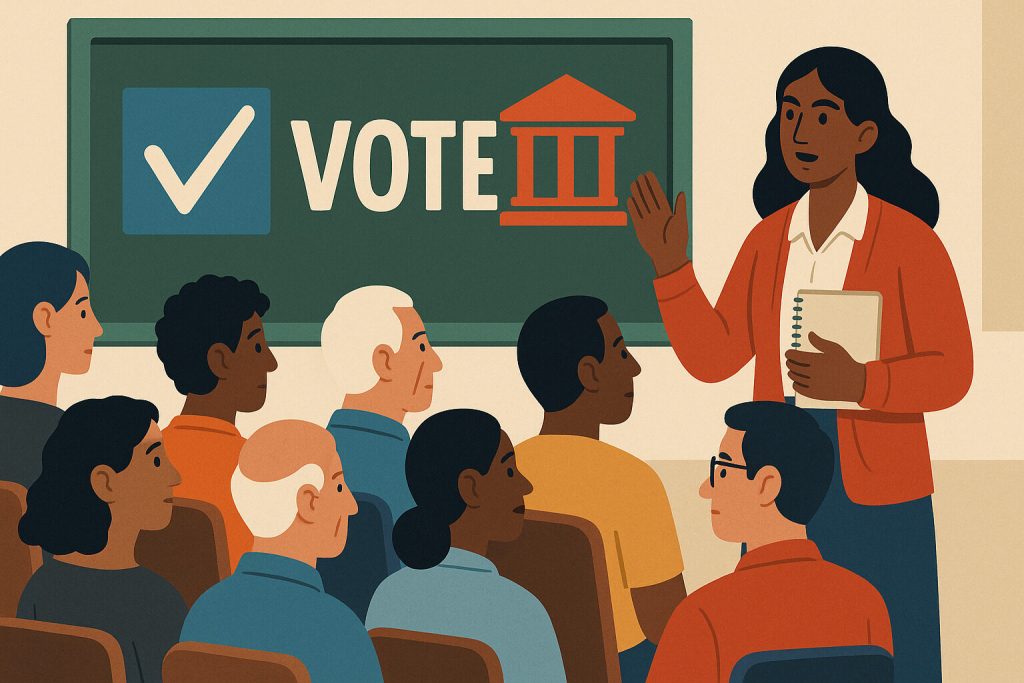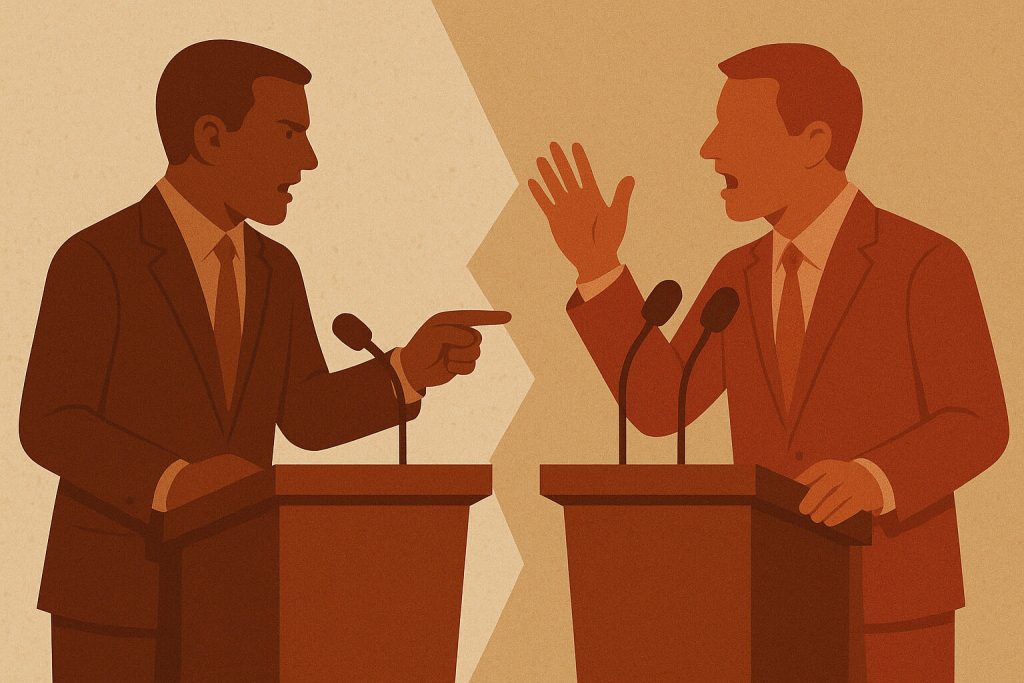
Community learning turns interest into action
Participation in elections goes beyond placing a ballot in a box. For many citizens—especially young people and first-time voters—the voting process can seem like a complex system. This is where civic workshops come in. These sessions serve as a gateway to demystify various aspects of elections—from the issues themselves to the process.
Through open discussions, group exercises, and interactive presentations, the connection between everyday issues and voter decision-making becomes clearer. One example is a workshop in a barangay where participants were divided into groups to discuss how local ordinances impact water or waste fees. Simple exchanges like these energize understanding.
When citizens actively participate in these discussions, a deeper awareness takes root. They are no longer just spectators or listeners—they become part of the process. Being part of the conversation fuels action, especially during election time.
Clarifying the voting process encourages participation
One of the main barriers to voting is the lack of knowledge about how it works. Many people fear making mistakes, especially when the ballot looks confusing. In civic workshops, these fears are eased as each step is explained clearly and practically.
For example, mock election exercises teach participants how to vote correctly, what to bring, and what to avoid. These simple practices help eliminate anxiety. People feel more comfortable going to the polls because they know what to expect.
When people are confident in the process, they are more likely to vote. Fear and confusion are no longer obstacles—they’re replaced by familiarity and preparedness.
Facts over fear shape better decision-making
Poor decisions often stem from lack of information. During elections, disinformation can spread confusion. Civic workshops prioritize delivering accurate and clear data so participants don’t fall for fake news.
One example is teaching participants how to identify reliable sources. Instead of relying on hearsay or gossip, they learn how to critically evaluate what they read and hear. They become more discerning and less likely to be swayed by social media noise.
As a result, they make more informed choices about candidates or issues. When decisions are grounded in truth, there’s greater respect for election outcomes—even if a favored candidate doesn’t win.
Local concerns connect voters to issues
Many election issues can seem distant from daily life. But civic workshops emphasize local problems and show how they tie into larger policy discussions. For instance, a traffic issue in a barangay can be connected to city council policies or national infrastructure programs.
This approach links personal experiences with high-level decisions. A mother struggling to get her child to school becomes interested in transport policy because she sees its direct impact.
Through a local lens, voting becomes more meaningful. It’s no longer abstract—it has a clear effect on daily life. That makes participation in elections more significant and relevant.
Shared spaces support respectful political dialogue
In a time of polarized discourse, especially on social media, civil conversations are rare. Civic workshops help bring these discussions back. They are spaces where diverse perspectives are welcomed, listened to, and processed respectfully.
Participants are encouraged to speak with an open mind. It’s not about party lines, but understanding issues and their impact on people. The goal is not to argue, but to strengthen respect for democratic processes.
This kind of dialogue is rare elsewhere. In civic workshops, respect is not demanded—it’s practiced. And when that culture exists, people become more open to learning—even if they don’t agree on everything.
Informed voters hold leaders accountable
One of the most powerful effects of civic workshops is empowering voters to demand accountability. Complaining on the streets or on social media is no longer enough. Instead, people learn how to file formal inquiries, write letters, or attend public hearings.
One group of residents learned how to file Freedom of Information (FOI) requests after attending a civic workshop. As a result, it became easier for them to track how barangay funds were being spent.
When people know the process and their rights, their voice becomes stronger. They are no longer easily silenced or ignored because they know how to stand up for their position—and their rights.
Community workshops break voter apathy
Many citizens are apathetic toward elections because they feel nothing ever changes. Civic workshops gradually shift this mindset. It’s not forced—it grows through personal connection and understanding.
When a participant feels heard and respected, they begin to feel important again. A facilitator once shared the story of an elderly man who attended despite being unfamiliar with such activities. In the end, he contributed the most insightful comments about the needs of senior citizens in the community.
Experiences like this build confidence. People are no longer passive observers—they become active participants in discourse. And from this, interest in civic participation is gradually reignited.
Real stories make politics relatable
Not everyone is interested in reading policy papers or watching forums. But when real-life stories are used in civic workshops, politics becomes more understandable and even appealing. Personal experiences give depth to discussions.
For example, a single mother who lost her job shared how the lack of local livelihood programs affected her. As a result, more participants became interested in candidates’ economic platforms.
Politics is not separate from personal life. When people’s stories are included in discussions, participants develop a deeper connection to the issues. It feels more real—more human.
Workshops grow future civic leaders
Not every participant will become a leader, but many are inspired to create change in their own way. It might begin with simply convincing family members to vote or joining a barangay assembly.
One student, after attending a civic workshop, started a voter education campaign at her school. At first, it was difficult—but eventually, it grew and reached other schools.
Civic workshops aren’t just for the present. They plant seeds for the future. Every piece of knowledge can be the start of broader action. It doesn’t have to be big—any action creates hope.
Voter readiness builds stronger democracies
The ultimate goal of civic workshops is not just knowledge—but readiness. When voters are informed, confident, and engaged, the entire system becomes more stable. It’s not dependent on one leader, but on the collective actions of citizens.
Every person who learns how to vote correctly, engage in discussions, or ask questions at the local office helps strengthen democracy. It’s not dramatic—but it’s certain. Slowly, through civic workshops, we build a community ready to choose, act, and hold accountable.
A democratic nation doesn’t live only on election day. It is shaped by daily learning, participation, and conviction. In this way, civic workshops become a foundation for a stronger future.


